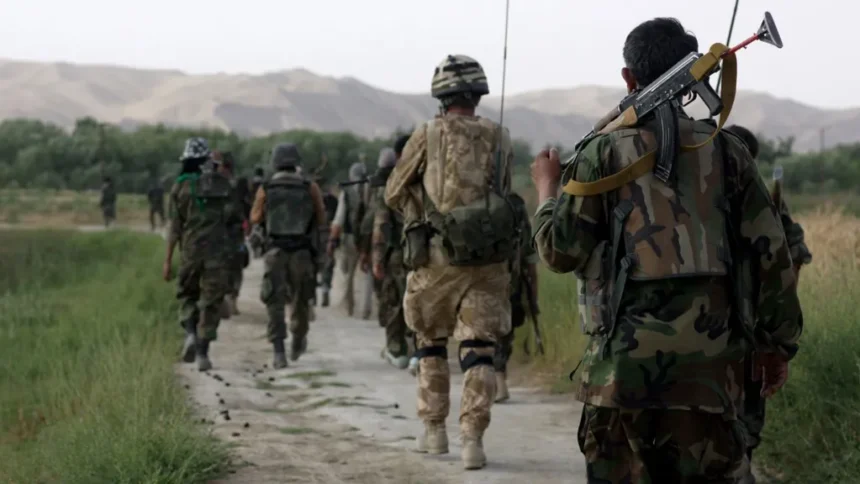British Shadow Defense Secretary John Healey has acknowledged that he is “incapable of saying with certainty” whether anyone has been killed as a result of a significant data leak that exposed the details of thousands of Afghans who had supported British forces.
Healey told the BBC that it’s “highly unlikely” that being on the leaked list would now increase their risk of being targeted by the Taliban. The personal information of nearly 19,000 individuals who applied for relocation to the UK after the Taliban’s takeover of Afghanistan was mistakenly leaked in February 2022 by a British official. The previous government reportedly became aware of the leak in August 2023 when the details were published on Facebook.
Calls for Accountability and Investigation
British Prime Minister Keir Starmer stated that the Conservatives have “serious questions to answer” regarding this information breach. He added, according to the BBC, that the chair of the defense committee has “indicated his intention to conduct further investigations.”
“I welcome this and hope that those who were in office at the time will welcome this scrutiny,” the Prime Minister added.
Furthermore, Speaker of the House of Commons Lindsay Hoyle remarked that the issue raises “significant constitutional problems.” He confirmed he has “asked the secretaries to consider whether there are any lessons to be learned from this case.” “If so, I will report to the House in due course,” he added.
On Tuesday, a super-injunction that had previously prevented reporting on the data leak was lifted.
Resettlement Efforts and Ongoing Concerns
A resettlement scheme for those affected by the leak has so far brought 4,500 Afghans to the United Kingdom. This initiative has cost £400 million, with a projected final cost of approximately £850 million. The scheme, now closed, is expected to bring a total of 6,900 individuals to the UK.
The Ministry of Defense believes that 600 Afghan soldiers involved in the leak, along with 1,800 family members, are still in Afghanistan. The existence of these relocations and the leak itself were kept secret until Tuesday, when the High Court lifted the super-injunction prohibiting the reporting of this story.
Healey told the BBC that the lifting of the super-injunction will now allow for “proper media reporting and scrutiny.” “There can be no democracy with super-injunctions in place,” he asserted.
Ben Wallace, who served as Conservative Defense Secretary, stated that a four-month order was sought upon becoming aware of the leak, which a judge converted into a super-injunction. He told BBC Radio 4’s Today program that his priority had been “protecting those people who might have been exposed.”
On Tuesday, Justice Chamberlain ruled to lift the super-injunction, stating that the Taliban “most likely already possess the key information in their databases,” and confirmation of its existence would not “significantly increase” the risk to those affected.
Additionally, it was announced that an email had been sent to those whose data was exposed, advising them to “be cautious” and take steps such as protecting online activities and not responding to messages from unknown contacts.







